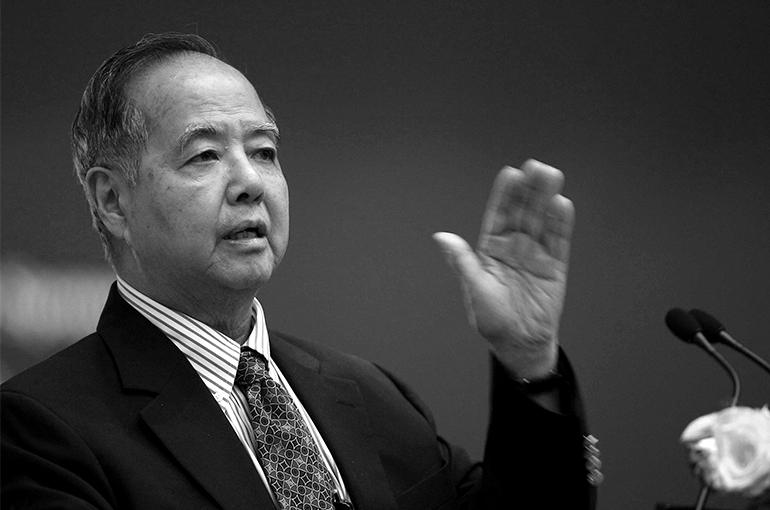 Tsung Dao Lee, China's First Nobel Prize Winner and Renowned Physicist, Dies at 98
Tsung Dao Lee, China's First Nobel Prize Winner and Renowned Physicist, Dies at 98(Yicai) Aug. 6 -- Tsung-Dao Lee, a renowned Chinese-American physicist who became China's first and second youngest scientist to be a Nobel laureate in 1957, has died. He was 98.
Lee passed away in San Francisco on Aug. 4, the Chinese Academy of Sciences's Institute of High Energy Physics announced on the same day. He was born in Shanghai on Nov. 24, 1926, with ancestral roots in Suzhou, China's Jiangsu province.
Lee is best known for contributing to the nonconservation of parity, the Lee Model, relativistic heavy ion collision physics, and non-topological soliton field theory. He was an emeritus professor at Columbia University and an honorary professor at Shanghai Jiaotong University.
Lee has works of milestone significance in the theory of particle physics, the theory of the nucleus, and statistical physics. In 1954, he put forward the Lee Model, playing a key role in exploring foundational issues of quantum field theory.
In 1956, Lee and Chen Ning Yang raised the judgment that parity is not conserved in weak interactions. The following year, they were jointly awarded the Noble Prize in Physics and the Albert Einstein Award in Science after experimental verification. In 1994, Lee was selected as a foreign member of the Chinese Academy of Sciences.
Lee also vigorously promoted China's science education industry, with the China-US Physics Examination and Application as a typical program he promoted to advance the country's science and education development. Lee personally initiated and facilitated the project.
Graduate Record Examinations and Test of English as a Foreign Language exams were unavailable in China when Lee proposed the CUSPEA project, said Huang Qingqiao, an associate research staff at Shanghai Jiao Tong University's School of History and Culture of Science.
It was necessary to design a dedicated-purpose system different from the postgraduate enrollment policies in the US to enable local universities to admit Chinese students, Huang noted, adding that to this end, Lee not only persuaded US colleges, one by one, to accept Chinese students but also designed a whole set of viable adoption schemes for CUSPEA.
Lee also made imperative contributions to developing China's scientific, technological, and educational careers and incubating talents. He facilitated the setup of 'classes for the gifted adolescent' at the University of Science and Technology, suggested the establishment of the National Nature Science Foundation and other institutions, proposed the foundation of the Tsung-Dao Lee Institute, and advanced the country's focus on fundamental scientific topics in basic research.
Editors: Xu Wei, Martin Kadiev